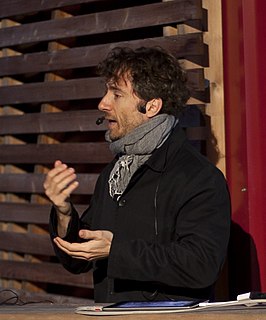A Quote by Alan Moore
There's a widespread cultural barrenness across art and political culture. But there are some pockets of resistance on the extreme margins, like the techno-savvy protest movements, small press, the creator-owned comics, that seem to be getting some signs of hope for the future.
Related Quotes
If the euro zone doesn't come up with a comprehensive vision of its own future, you'll have a whole range of nationalist, xenophobic and extreme movements increasing across the European Union. And, frankly, questions about the British debate on EU membership will just be a small sideshow compared to the rise of political populism.
Comic books themselves are getting more literate. And there are people who are screenwriters and television writers and novelists who are writing for the comics, for some reason, they love doing it and some of the art work in the comics, I mean it rivals anything you'll see hanging on the walls of museums, they're illustrations more than drawings and all the people are discovering this and they're turning on to it.
The 20th century is a period defined by cultural and artistic movements. However, the 21st century creative-scape that we occupy now doesn't really have movements in the same way. Instead it's made up of diverse individuals working across various platforms simultaneously; art, architecture, film, music and literature.
In my family there was no small talk, only talk about serious things like global politics - trying to interpret the distant political signs, looking desperately for some hope things would change. Religion was forbidden beginning in 1968, when I was born. So my communication with them was limited to issues of everyday life, which were issues of survival.
Museums just seem to have this borrowed cachet—if I want to seem cultural, I will design something cultural. I resist the idea that culture is only opera houses or theatres. Culture is your entire life around you: toilets, the bus, the kerb or the dump where you drag your waste. Culture has come to mean the arts, but it’s swimming pools as well.






































